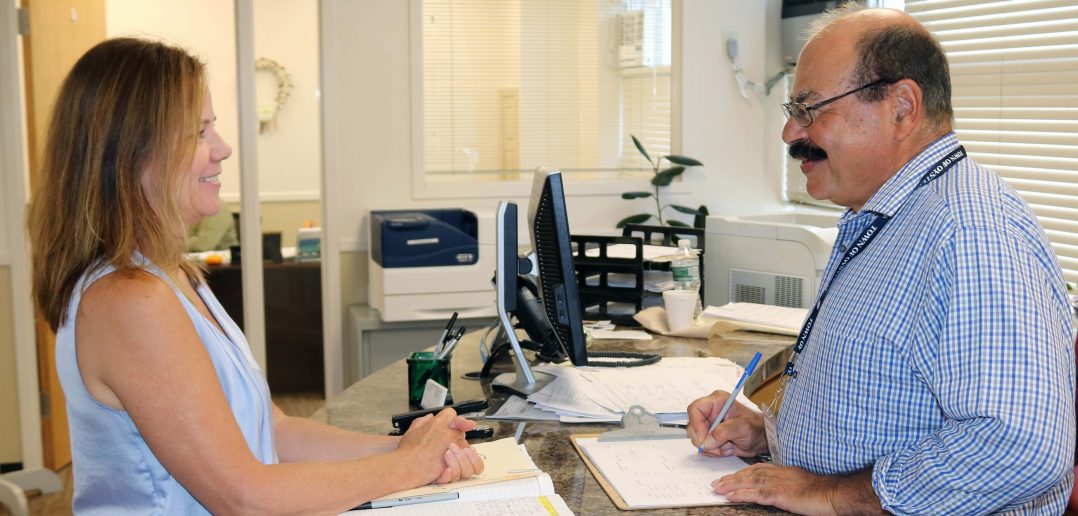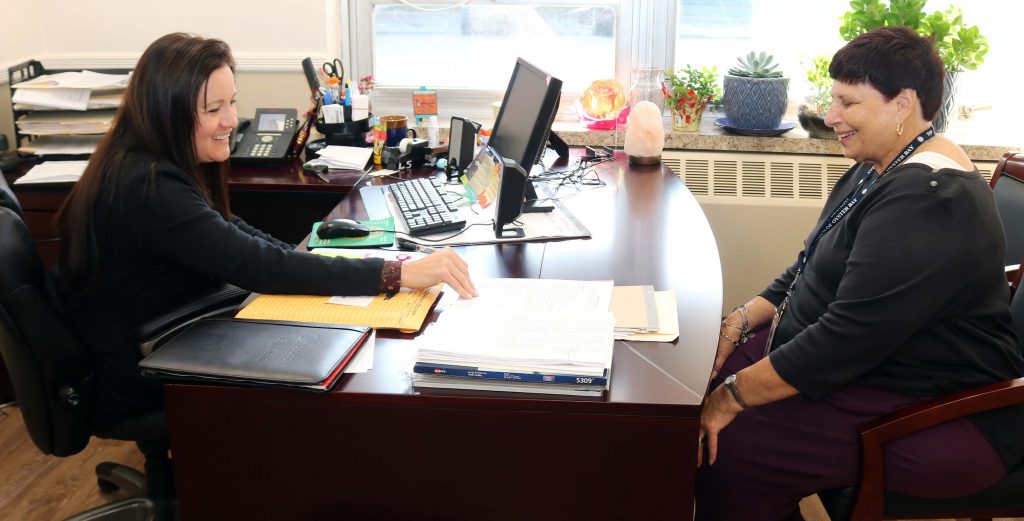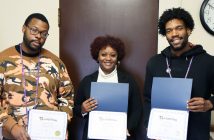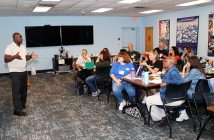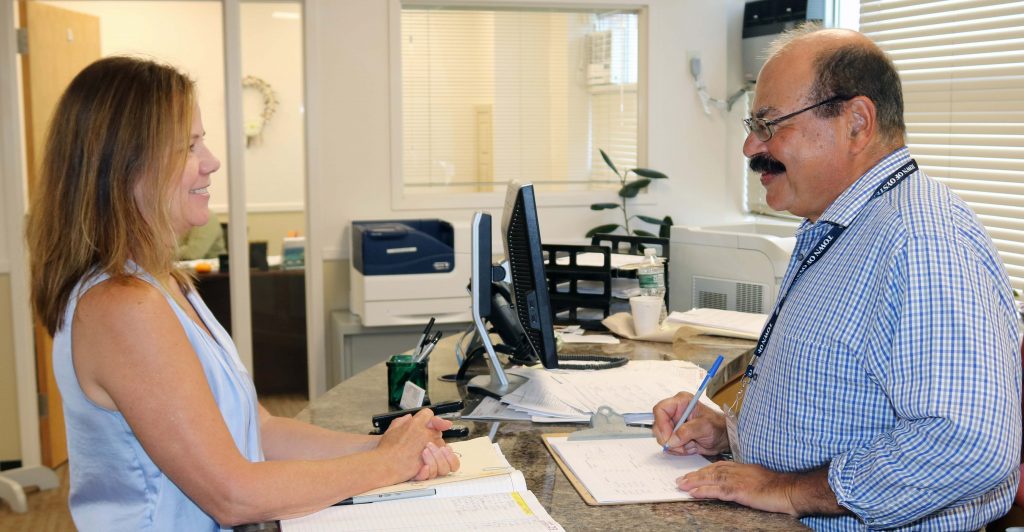
Christine D’Amico and Gus Mavroudis discuss what job candidates will best meet the needs of an organization which is looking for workers.
MASSAPEQUA — The cost of living on Long Island seems to be growing at a rate that is faster than many of us can keep up with, which is why the Town of Oyster Bay established its Intergovernmental Affairs Department.
CSEA members working in the department have the very important task of obtaining aid from the federal and state governments to support and manage the town’s grant-based programs. The department includes three divisions: Employment and Training, Community Development and Grant Writing.
In the Employment and Training Department, our members work with community members who are unemployed or underemployed to help them find employment.
“We work with businesses, as well as job seekers, to find an employment match,” said Job Developer Christine D’Amico. “We also hold job fairs. Last year we had around 50 participating employers.”
Our members also counsel job seekers.
“We help potential employees find jobs through workshops, which focus on job-seeking skills like interviewing,” said Job Developer Claudia Devlin. “In addition, there are workshops for employees over 50 years old who need to update their professional skillset to better suit the needs of the current job market.”
These workshops include computer skills, social media networking workshops and a host of other trainings, which are all beneficial to all job seekers.
Funding for the department’s resources comes through the Workforce Innovation and Opportunity Act, which provides for the employment-based programs and assessment tests.
“This is the Town of Oyster Bay, Town of Hempstead and City of Glen Cove workforce development area, so when it comes to classroom training, we solely fund individuals who reside in that area,” said D’Amico. “Only individuals who are considered priority of services population, such as veterans, low income individuals or on social services are exceptions.”
On top of that, the department offers programs that cover the cost of furthering your education, or pursuing license and certificate programs, for up to 52 weeks.
“We partner with the Department of Labor, too,” said Devlin. “People can visit our facility or go to the Hicksville location, depending on where they live, to use employment services.”
Members feel their work is very rewarding.
“The best part of the job is working with the people,” said Devlin. “Being a part of making the lives of our patrons, and the lives of their families, better is incredibly fulfilling.”
The Community Block Grant program, which falls under Community Development is funded through the
U.S. Department of Housing and Urban Development (HUD). The majority of the allocated block of funding goes to residential rehabilitation, public housing rehabilitation, public facility infrastructure work and funding for about 10 nonprofit organizations.
“For residential rehabilitation, residents over 60 years old have to qualify financially; you can’t make above 80 percent of the area median income,” said Program Director Peter Aiello. “If they qualify, we can make improvements on their home such as a new roof, new windows and a new boiler.”
“We can also modify a home to be more suitable for someone who is physically challenged,” said Aiello. “So, if a resident doesn’t meet the age criteria, they can still get help for household members with physical challenges.”
The program allows for seniors to stay in their home and get renovations that they may not be able to afford through a 75 percent interest free loan and a 25 percent grant.
The Town of Oyster Bay also has a Public Housing Modernization Program, which falls under HUD and allows for low-income families who don’t meet the qualifications for the residential rehabilitation program to make home improvements.
The Public Facility Improvements Program allows our members to use more HUD funding, and resources, to help make improvements in public areas in low to moderate income area neighborhoods.
“Using census data to help us pinpoint public areas where we can make improvements like adding a sidewalk to the side of a school,” said Aiello. “Public funding can be used for projects that eliminate architectural barriers for the physically challenged, as well.”
Lastly, members in the department work with nonprofit organizations to provide scholarship money for low to moderate income earners, as well as physically challenged individuals, so they can afford to participate in certain community activities.
CSEA members are well aware of the importance of their workplace contributions.
“The work we do in the Intergovernmental Affairs Department is very rewarding,” said Aiello. “The public services we provide are wonderful and a true help to the community.”
— Wendi Bowie

